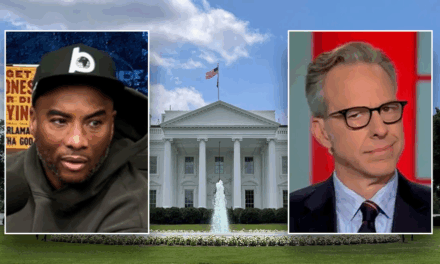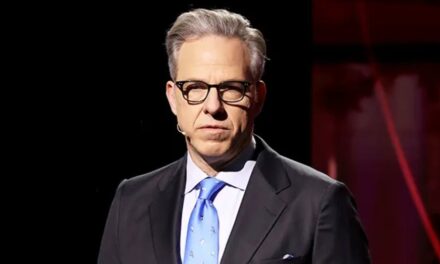In a significant shift reflective of changing political landscapes, a recent report from Morning Consult reveals a marked decline in the percentage of Generation Z individuals identifying as liberal. The findings show a 12-point drop in liberal identification among this demographic since 2016, raising questions about the evolving political ideologies and values within younger generations.
Generation Z, generally defined as individuals born from the late 1990s to the early 2010s, has been characterized by its rising influence in the political sphere, particularly in the United States. This cohort has often championed progressive causes, from climate change to social justice. However, the recent data suggests a shift away from staunch liberal identification, prompting numerous analysts and political experts to delve deeper into the underlying reasons for this change.
The June report from Morning Consult highlights that in 2016, approximately 62% of Gen Z identified as liberal. Fast forward to 2023, and that figure has dwindled to around 50%. This stark decrease implies that only half of the Generation Z population now aligns themselves with liberal ideologies. The report suggests this decrease may not simply represent a disillusionment with liberalism but could reflect a broader re-evaluation of political identities among young Americans.
The findings align with several trends observed in political conversations and engagements among the youth. Factors such as economic instability, concerns over personal freedoms, and a more significant focus on pragmatic and issue-oriented approaches to governance rather than strict ideological adherence may be contributing to this shift. Additionally, recent years have seen Generation Z grappling with complex issues such as inflation, job market instability, and the aftermath of a global pandemic, which could influence their political beliefs and affiliations.
Political observers suggest that Generation Z is more likely now than ever to question traditional labels and seek movements that resonate with their concerns and priorities rather than aligning themselves with the established liberal or conservative paradigms. The emergence of third-party movements, independent candidates, and issue-driven collaborations may reflect this shift, encapsulating a generational tendency towards authenticity and pragmatism over partisan allegiance.
Moreover, the radical shifts in the political climate, characterized by divisive partisan politics, may have left many in Generation Z disenchanted with extreme political affiliations. With the relentless coverage of polarizing events across news platforms, it is plausible to conclude that these young voters are advocating for candidates and initiatives that transcend liberal and conservative labels, focusing instead on actionable change that addresses their immediate societal concerns.
The implications of this shift extend beyond merely identifying as liberal or conservative. As Gen Z encompasses a variety of issues that they believe are pivotal, their decline in clear identification with liberalism prompts political entities to re-evaluate their outreach strategies. Engagement methods that have traditionally resonated with younger voters may be counterproductive if they continue to rely heavily on ideological divisions rather than emphasizing collaboration and solution-oriented approaches to pressing societal issues.
This transformation may also influence crucial upcoming election cycles, particularly as demographic shifts reshape the electorate. With Gen Z poised to follow through with their plans to vote in the next elections, political parties need to adapt their platforms and messages to address the evolving wishes and preferences of this generation of voters.
The report from Morning Consult presents a wake-up call for policymakers and political strategists. As the wave of progress that characterized earlier years of the 21st century appears to experience a retreat among this critical demographic, the need for a more nuanced understanding of young voters’ concerns has never been more urgent. Bureaucratic institutions and political organizations must invest in listening to Generation Z in authentic ways that honor their diverse perspectives and aspirations.
Critics of the decline in liberal identification may point to issues such as the disconnect between younger voters and established political institutions as a potential catalyst for this trend. Young people who feel that their voices are not adequately represented are likely to turn away from those political affiliations that do not mirror their realities. Thus, fostering an environment where meaningful dialogue can take place is essential in garnering the trust and support needed to re-engage younger generations.
Anticipating changes in voter turnout trends resulting from shifting ideologies is crucial, especially as midterm and presidential elections loom. Political campaigns must pivot towards understanding and responding to the complex realities faced by Generation Z, crafting appealing, relatable narratives that align with their current experiences rather than relying solely on past affiliations and promises.
Despite the reported decline in liberal identification, it is worth noting that Generation Z remains a diverse and multifaceted group with a wide range of beliefs and values. This generation is not monolithic; instead, it encompasses various perspectives that cannot be easily categorized by absolute labels. The journey towards political meaning-making in this generation is ongoing, with many young individuals still actively advocating for issues they are passionate about, albeit through evolving means.
As part of these shifts, many Gen Z activists continue to address climate change issues, social inequities, and calls for workplace reforms. Even if they are moving away from traditional liberal identification, the fervor for social change and responsibility holds strong. Many progressives within this generation are still staunch advocates for issues that align with their values, even if their political label is changing.
In conclusion, the reduction in liberal identification among Generation Z from 2016 to the present highlights a complex evolution of political affiliations and ideologies in young Americans. As political parties and institutions assess ways to re-connect with this dynamic group, it becomes essential to foster dialogues that address their real-world concerns rather than adhering to outdated paradigms of belief. With the upcoming electoral cycles approaching, both major political parties must diligently strive to engage this vibrant generation meaningfully, providing avenues for their voices to be heard while reflecting the diversity of opinions that exist within this critical demographic.































